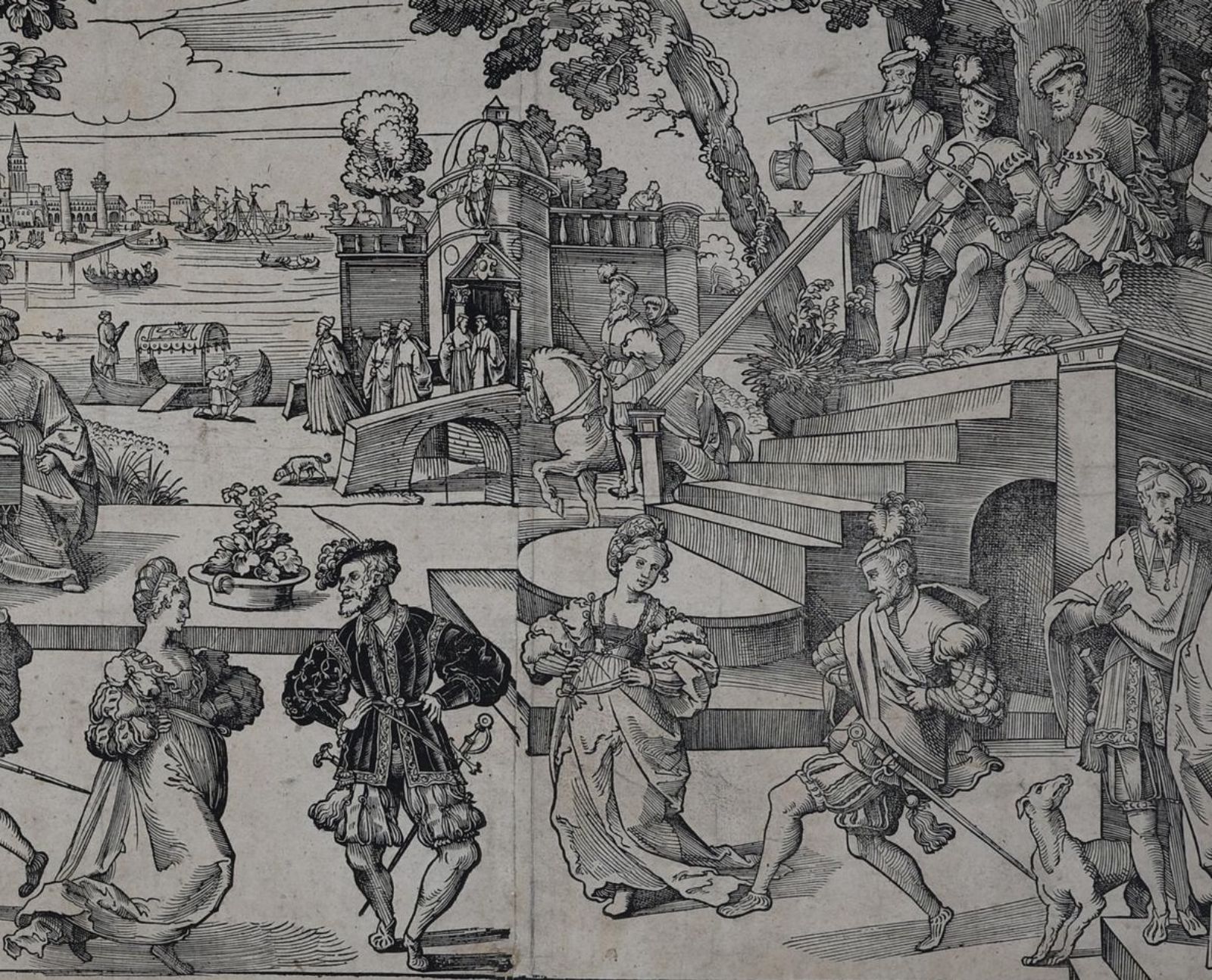Studientag
Singing the Galliard
21.10.2025, 9:30h – 17h
Kleiner Saal,
Musik-Akademie Basel,
Leonhardsstrasse 6,
4051 Basel

Dancing and singing at the same time is rare today. However, written records reveal that dance songs have been an integral part of musical culture for as long as musical practices have been documented. The years around 1600 saw the heyday of texted dance tunes. And among the extant sources, the sung galliard is the most prominent dance.
Initially, the galliard was a purely instrumental dance popular in France and Italy. With its lively ternary rhythm and its hops, jumps, and leaps, by the 1530s the galliard had become fashionable in all social classes. But it was more than a dance, as the term gaillard/gagliardo rather epitomized an attitude, expressing strength, energy, and virility. In the early 1590s, the Italian singer and composer Giovanni Giacomo Gastoldi set a trend with his printed collections of balletti per cantare, sonare e ballare – dances to be sung, played, and danced – in which galliard songs make up the bulk. This trend rapidly spread north of the Alps, particularly in the German-speaking area.
This study day is a realized as a collaboration of the Schola Cantorum Basiliensis and the Musicology Department of the University of Basel, and combines interdisciplinary research and practical approaches.
In our study day we will explore the cultural contexts and performance practices of the galliard, a dance that required particular physical strength and agility especially from the male dancer. Moreover, focussing on the German sung galliard and its relationship with the Italian model, we will approach the following questions:
- What was the relationship between dance steps, music, and lyrics, particularly with regard to phrasing and rhythm?
- How were poetic and musical structure aligned?
- What changes occur when the Italian sung galliards are set to a new German text?
- What were the typical instrumentations?
- How can the singing, dancing, and instrumental accompaniment be balanced? Etc.
After introductory inputs by Hanna Walsdorf and Martina Papiro, Hubert Hazebroucq and Gabriele Miracle will each offer a presentation followed by a practical workshop.
> Free admission
> Active participation is encouraged; please contact us to receive the selection of sheet music.
> Students of the SCB who wish to participate actively are requested to register via ONLA by the 12th October. More information for SCB Students here (FHNW Inside).
PROVISIONAL PROGRAM
- 09:30 Introduction
- 09:40 Hanna Walsdorf (Universität Basel): Singing for Dance and Dancing to Songs around 1600: Giovanni Giacomo Gastoldi’s “Balletti a 5 voci” (1591) and its International Impact
- 10:10 Gabriele Miracle (Amelia, I): Dancing with the Sword. The Gagliarda on the Renaissance Battlefield
- 10:40 Break
- 11:00 Gabriele Miracle (Amelia, I): workshop with students
- 11:45 Martina Papiro (SCB): Raised Legs, Jumps, and Other Visual Characteristics of Dancing the Galliard in Iconography
- 12:15 Lunch break
- 13:45 Hubert Hazebroucq (Conservatoire Régional de Paris/SCB): The Danced Gagliarda at the time of Gastoldi – introduction (30') & workshop with students (90')
- 15:45 Break
- 16:00 Experimental session with different instrumental & vocal combinations and concluding discussion.
- 17:00 End
Supported by the Freiwillige Akademische Gesellschaft (FAG)
